
The year-on-year growth of China’s consumer price index (CPI) and producer price index (PPI) in June kept flat with that in May. As carryover effect keeps decreasing, industry insiders expect that the increase in CPI and PPI may both slow in the second half of the year and CPI will perhaps hike by within 2 percent for the whole year. Meanwhile, experts predict that PPI will gain by over 5 percent on average this year, ending deflation over past five years.
Analysts point out that there is neither inflation nor deflation in China’s economy now and policy will be still tight currently to ensure to achieve the target of maintaining economic growth for the whole year and preventing risks.
Inflationary pressure expected to further reduce in H2
China’s CPI rose by 1.5 percent year on year in June, flat with the pace in May, the National Bureau of Statistics said on Monday.
“The growth in CPI is mainly driven by carryover effect. The carryover effect in June is the highest during the whole year,” said Liu Xuezhi, senior researcher at financial research center of Bank of Communications, at an interview with Shanghai Securities News. He predicted that the year-on-year increase in CPI is likely to weaken along with decline in carryover effect in the third quarter.
In the first six months of this year, CPI saw the highest growth with 2.5 percent in January and then jumped by less than 2 percent year on year later. The average increase registered 1.4 percent in the first half, much lower than the government’s inflation target of 3 percent.
As food price is very low, inflationary pressure won’t be huge in the second half and CPI may surge by about 1.5 percent in 2017, said Li Huiyong, chief macro analyst with Shenwan Hongyuan Securities.
Noticeably, core CPI deducting food and energy moved up by 2.2 percent in June from a year earlier, 0.1 percentage point higher than the increase in May.
In the opinion of Liu, owing to transformation of economic structure, change in growth impetus and consumption upgrading, tertiary industry witnessed good growing momentum and the increasing demand for service boosted prices of service products, which was the major reason for the stable growth of core CPI.
Statistics which was released yesterday showed that PPI hiked by 5.5 percent year on year in June, flat with that in the previous month and discontinuing the 3-month decline.
In terms of industry, prices of industrial products, particularly coal, ferrous metal, nonferrous metal and other products, whose prices skyrocketed previously, fell remarkably since the second quarter. As the prices have dropped to an equilibrium level, the declining trend of prices of these products has weakened and some of them even rebounded.
Liu viewed that as carryover effect will decrease gradually in the second half, growth of PPI is expected to slow but may pick up in some months. “Average growth of PPI is predicted to be over 5 percent this year, 7 percentage points higher than that in last year, which will end the 5-year deflation.”
Zhang Jun, chief economist with Morgan Stanley Huaxin Securities, remarked that as carryover effect will see a downturn in the second half of the year, the year-on-year growth of CPI and PPI will slow in the future even if it moves steadily on a monthly basis.
Monetary policy maintains tight
Monetary Policy Committee of the PBOC recently held the second quarterly regular session of 2017, stating that it would pay close attention to the latest economic and financial movement at home and abroad and change of international capital flow, implement moderate and neutral monetary policy, and apply various monetary policy tools so as to maintain liquidity basically stable and guide monetary loans and social financing to grow reasonably.
“Regarding core CPI, prices of commodity are still steady now and inflation won’t influence the PBOC’s tune towards monetary policy within the year,” said Zhang.
In his opinion, the PBOC suspended reverse repos in recent two weeks, showing obvious attention of draining money from the market. Under the framework of neutral monetary policy, the PBOC will keep its stance in order to maintain balance between financial deleveraging and stabilizing economic growth, and guard against systemic financial risk when policies of overseas central banks change.
Li also indicated that in terms of prices of commodities, there’s neither inflation nor deflation in China’s economy at present and policy will be kept tight on the whole to ensure to achieve the target of maintaining economic growth for the whole year and preventing risks.
Translated by Vanessa Chen
















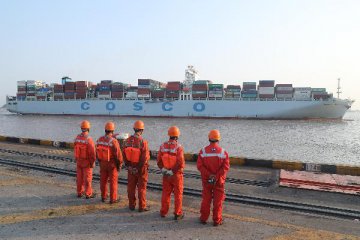
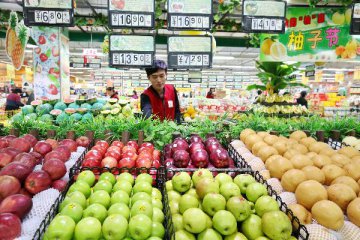
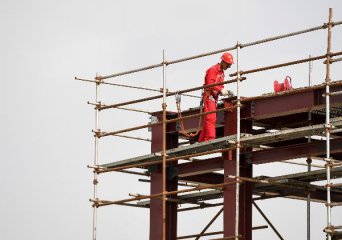
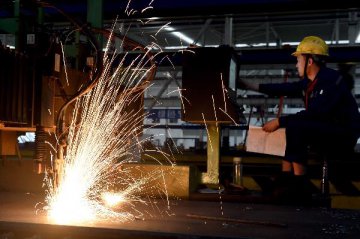
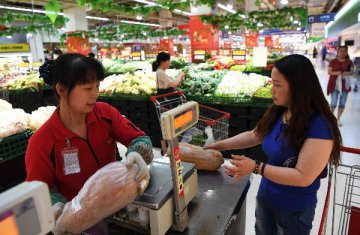



Latest comments